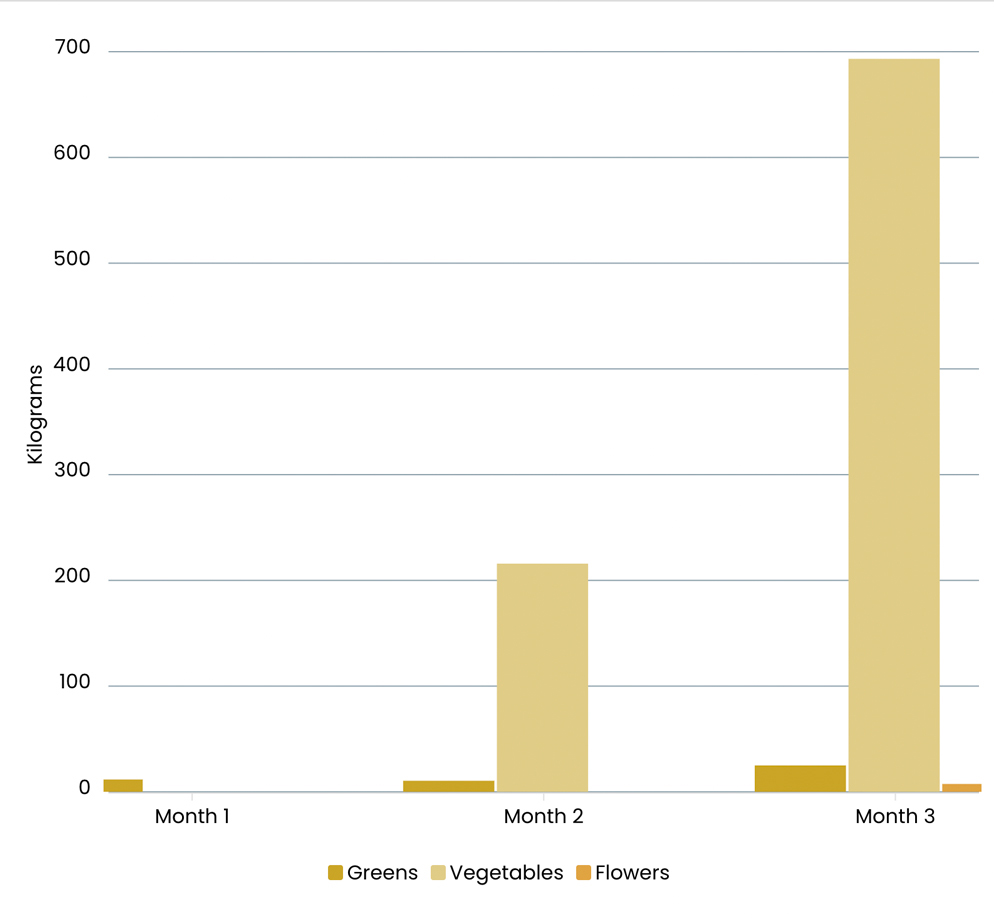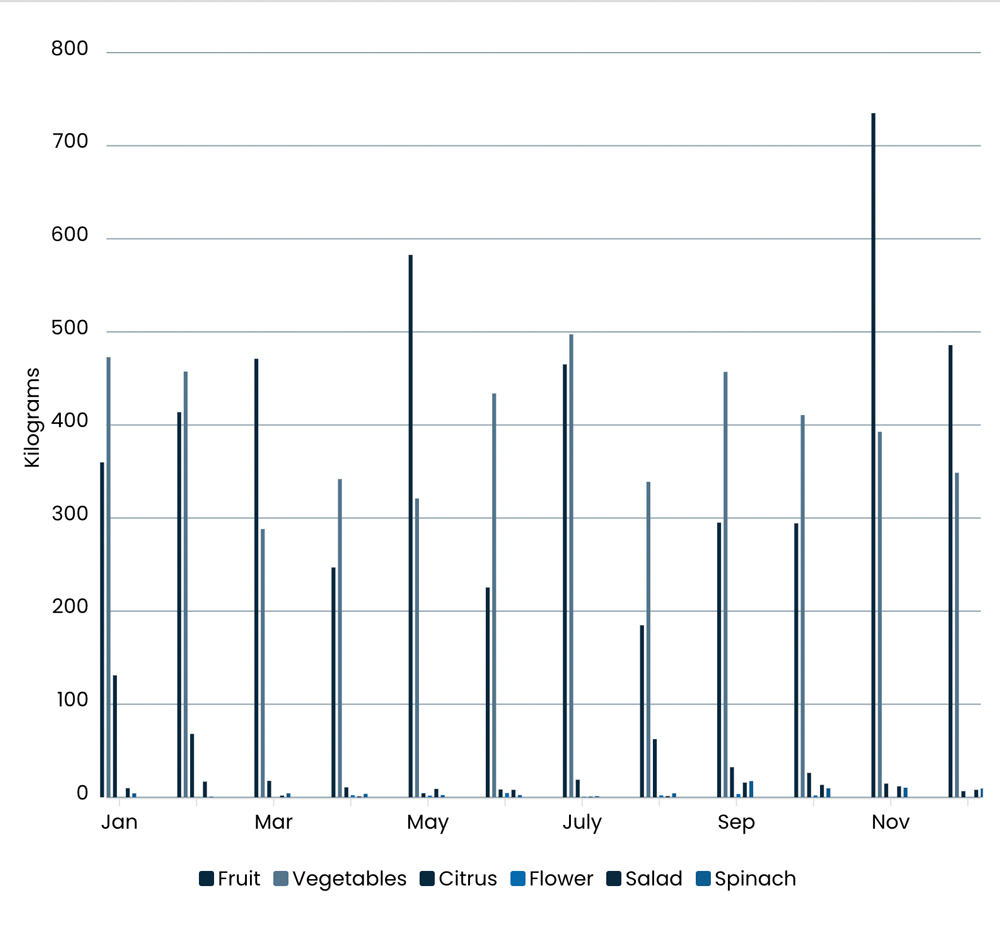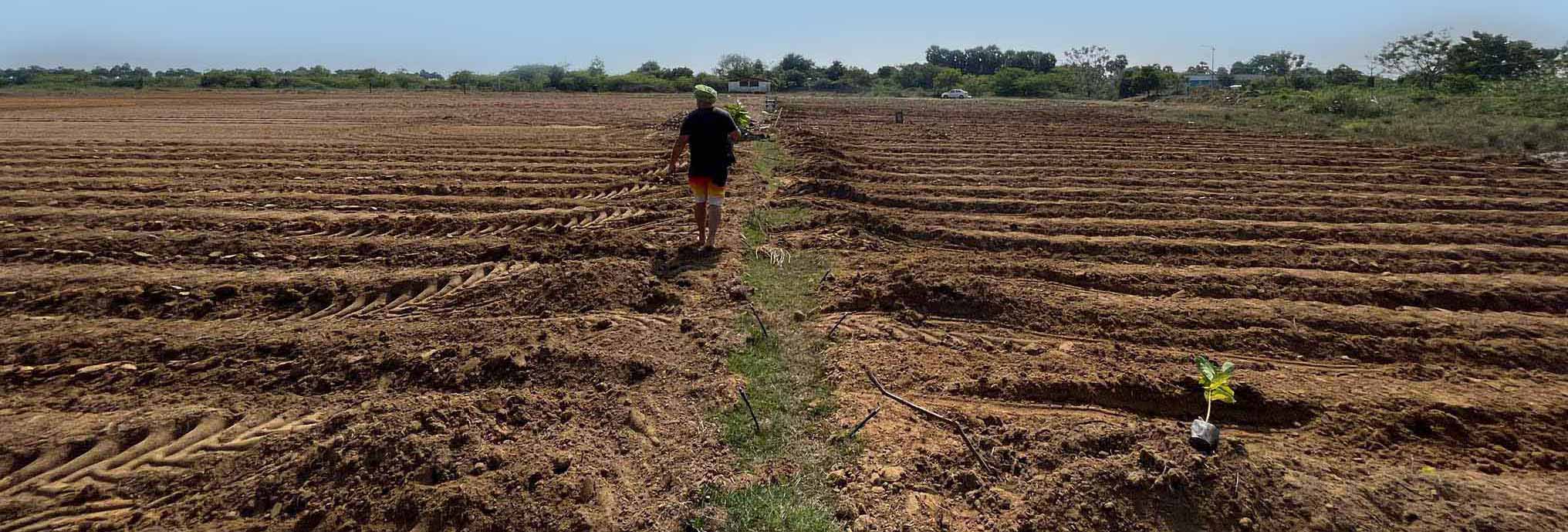From Ornamental to Edible
Re-landscaping Corporate Spaces
Are you utilizing your outdoor space effectively?
We can help turn your unused space to create a revolution; into a community-building opportunity by growing and sharing food. Let us tell you more.
Adding Value to your Outdoor spaces
Imagine the positive impact of fostering a culture of outdoor appreciation among your employees. By offering healthier, locally grown foods on campus, you can strengthen a sense of shared cultural identity and participation in a greater value system. Your employees and clients can take pride in actively supporting your net-zero values by consuming campus-grown food. This not only ensures financial sustainability but also cultivates loyalty and serves as a catalyst for positive social change within your community by;
I. Embracing Urban Farming for a Nostalgic and Sustainable Future
A. Embracing nature in an urban setting
B. Reconnecting with traditional foods
C. Benefits for employees, clients, and visitors
II. Creating an Urban Farm Paradise
A. Incorporating a diverse range of local, traditional crops
B. Establishing a kitchen to prepare and serve the harvested produce
C. Promoting cultural identity through native crops
III. Engaging Experiences for All
A. Encouraging children to participate in harvesting activities
B. Exploring unique and nostalgic/forgotten food options
C. Fostering storytelling and nostalgia through food and landscape
IV. Educational and Community Engagement
A. Hosting workshops on seed collection and propagation
B. Involving the community in nursery activities
C. Empowering individuals to grow their own plants
V. Deepening Community Connection
A. Addressing collective well-being through on-site food production
B. Celebrating and preserving cultural nutritional heritage
C. Strengthening community ties through shared experiences
Our Mission and Expertise is to:
– Highlight the organization’s ability to turn barren land into productive gardens.
– Emphasize the 28 years of success in building community and serving sustainable food at the Solitude farm in Auroville, India.
– Introduce the concept of transforming corporate and college campuses into thriving gardens and sustainable food sources.
Here’s what we can offer:
Benefits of Transforming Outdoor Spaces:
– Explain the ease of planning, planting, harvesting, and preparing food from corporate gardens.
– Discuss the economic and community-building opportunities associated with creating edible landscapes.
– Emphasize the value of utilizing previously underused outdoor areas for sustainable food production.
Process and Training:
– Outline the step-by-step guidance provided, from seed to plate.
– Highlight the training offered to corporate and college teams to maximize the value of outdoor environments.
Diverse Opportunities Offered:
– Enumerate the various activities and opportunities that can arise from on-campus gardens and kitchens, such as educational workshops, team-building activities, seed banks, and cooking classes.
– Illustrate how these initiatives can contribute to community building and sustainable living.
Conclusion:
– Emphasize the viability and sustainability of the farm-to-plate approach for utilizing land.
– Express the organization’s enthusiasm for assisting in the transformation of corporate and college campuses into vibrant, sustainable spaces.
Recent corporate projects we’ve created
Swarnabhoomi
Since January 2024, we have transformed 5 acres field on the Tamil Nadu campus into a thriving food forest, producing up to 150 kilograms per week from 1 acre*
Production | Greens & Vegetables
Harvest growth on newly acquired land

Production | Fruits & Vegetables
Imagine the incredible potential yield from 4 acres of a mature food forest
The charts depict a year-long abundant harvest from a fully grown, diverse food forest (4 acres) in Solitude, Auroville. The farm produces local and seasonal vegetables, leafy greens such as spinach, salads, edible weeds; fruits, and edible flowers. These are served in the Solitude café’s daily menu, which includes lunch thali, salads, juice, and smoothies. Additionally, the farm provides CSA (community-supported agriculture) baskets. Edible flowers and leaves are also used to create dehydrated powders with Ayurvedic values. The following chart displays the total monthly harvest, averaging a ton (500 kg) every month throughout the year.

Your Impact
Growing Food as a Foundation of Cultural Identity
Significance in understanding common needs and belief in the common good
Benefits of Growing Food
• Creation of safety and pride within communities
• Building allegiances and loyalty
Company’s Brand
• Differentiating between branding and actual practices
• Transforming landscape to demonstrate commitment to net zero and climate resilience
• Leading towards a flourishing future and “New Earth” model
